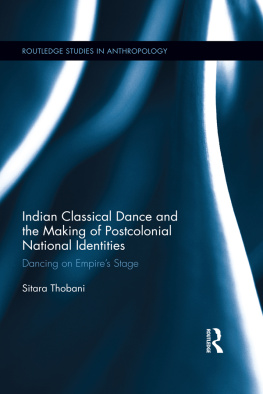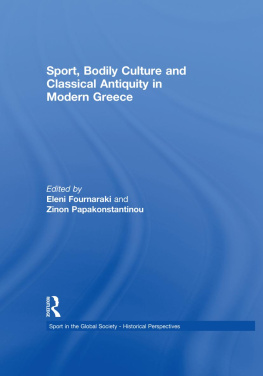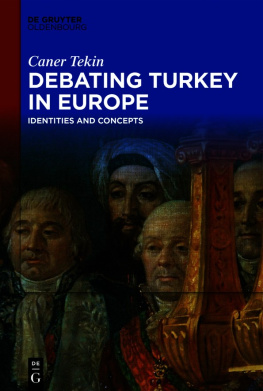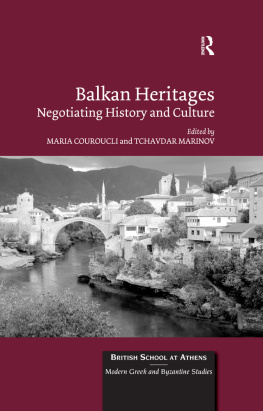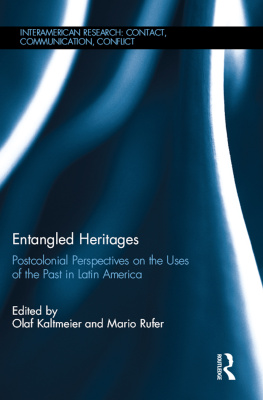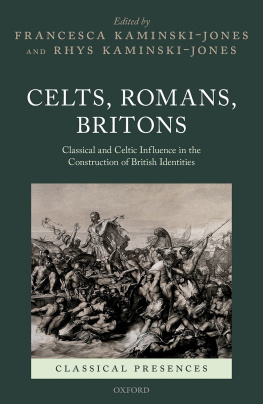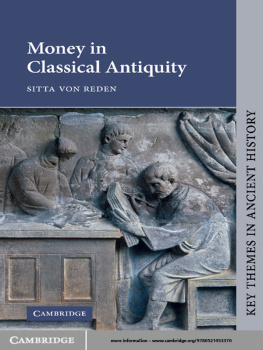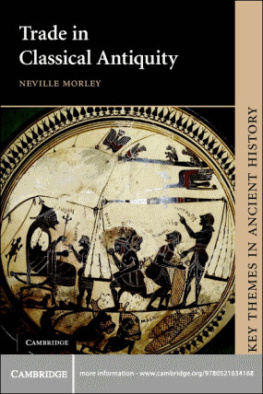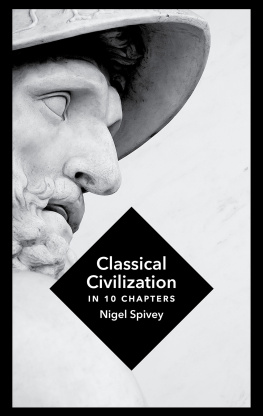
Classical Heritage and European Identities
Classical Heritage and European Identities examines how the heritages of classical antiquity have been used to construct European identities, and especially the concept of citizenship, in Denmark from the eighteenth century to the present day. It implements a critical historiographical perspective in line with recent work on the reception of classical antiquity that has stressed the dialectic relationship between past, present and future.
Arguing that the continuous employment and appropriation of classical heritages in the Danish context constitute an interesting case of an imagined geography that is simultaneously based on both national and European identities, this book shows how Denmarks imagined geography is naturalised through very distinctive uses of classical heritages within the educational and heritage sectors. It does so by exploring three significant and interrelated arenas where the heritages of classical antiquity are used to shape Danes as European citizens. Together, these three cases emphasise different but interconnected ways in which classical heritages are being put to use in order to construct Denmarks own distinctive national identity within Europe. Finally, the book also sheds light on some of the challenges that face unified and homogenous conceptions of European heritage and identity, as well as the notion of the classical itself.
Classical Heritage and European Identities is the first English-language monograph to situate the Danish case within the wider European context. As such, the book should be essential reading for researchers and students engaged in the study of heritage and museums, classics, education and modern European history.
Lrke Maria Andersen Funder is a Postdoctoral Research Fellow at the Department of History and Classical Studies, Aarhus University. Her research concentrates on the reception of antiquity, material culture and collections.
Troels Myrup Kristensen is Associate Professor of Classical Archaeology at Aarhus University and leads CoHEREs WP5. He works on ancient pilgrimage, visual culture and cultural heritage.
Vinnie Nrskov is Associate Professor of Classical Archaeology and Director of the Museum of Ancient Art and Archaeology at Aarhus University. Her research focuses on the uses of the classical past, the reception of classical antiquity, and the history of classical scholarship.
Critical Heritages of Europe
Series editors: Christopher Whitehead and Susannah Eckersley
The Critical Heritages of Europe series seeks to explore the cultural and social politics of the European past in the present. Bridging theoretical and empirical research, the series accommodates broad understandings of Europe a shifting and historically mutable entity, made both of internal tensions and exogenous encounters, reimaginings and influences. Heritage also is taken as an expansive paradigm, made in myriad practices where the past is valorised for the present, from folk traditions to museums and memorials, the management of historic sites and traditions, and everyday matters such as education, political discourse, home life, food consumption and peoples relations with place.
Books in the series engage with European heritages in critical times in all senses when Europe and mobilisations of its heritages and memories are called upon to solve problems and when contests over the meanings of the past are part of wider social and political relations and tensions. Heritage practices are variously informed by civil and uncivil visions, the politics of difference and copresence, dif ficult pasts, relations with the outside, borders, margins and migrations. Critical questions include:
- What is the European past made to do in the present and for the future?
- What counts as European heritage? To whom, and why?
- How and why do relationships with, and attitudes to, the past inform identity positions, social orders and moral values in, or in relation to, Europe?
- When and where in the (wider) world do European heritages configure identities?
- What are the contemporary meanings and effects of global encounters, mobilities and trajectories in which Europe has played roles?
- What theoretical and critical perspectives can be articulated to contribute new understandings of European heritages? How might these be made relevant for current and future heritage practice?
- What are the relations between theory, criticality, ethics and heritage practice in the European dimension?
Selected titles:
Classical Heritage and European Identities
The Imagined Geographies of Danish Classicism
Lrke Maria Andersen Funder, Troels Myrup Kristensen and Vinnie Nrskov
For more information about this series, please visit: www.routledge.com/Critical-Heritages-of-Europe/book-series/COHERE
First published 2019
by Routledge
2 Park Square, Milton Park, Abingdon, Oxon OX14 4RN
and by Routledge
52 Vanderbilt Avenue, New York, NY 10017
Routledge is an imprint of the Taylor & Francis Group, an informa business
2019 Lrke Maria Andersen Funder, Troels Myrup Kristensen and Vinnie Nrskov
The right of Lrke Maria Andersen Funder, Troels Myrup Kristensen and Vinnie Nrskov to be identified as authors of this work has been asserted by them in accordance with sections 77 and 78 of the Copyright, Designs and Patents Act 1988.
With the exception of Chapter 1, no part of this book may be reprinted or reproduced or utilised in any form or by any electronic, mechanical, or other means, now known or hereafter invented, including photocopying and recording, or in any information storage or retrieval system, without permission in writing from the publishers.
Chapter 1 of this book is available for free in PDF format as Open Access from the individual product page at www.routledge.com. It has been made available under a Creative Commons Attribution-Non Commercial-No Derivatives 4.0 license.
Trademark notice: Product or corporate names may be trademarks or registered trademarks, and are used only for identification and explanation without intent to infringe.
British Library Cataloguing-in-Publication Data
A catalogue record for this book is available from the British Library
Library of Congress Cataloging-in-Publication Data
A catalog record for this book has been requested
ISBN: 978-1-138-31750-5 (hbk)
ISBN: 978-0-429-45517-9 (ebk)
Typeset in Times New Roman
by Apex CoVantage, LLC
The writing of this book was funded by the European Unions Horizon 2020 research and innovation programme under grant agreement no. 693289, awarded to Critical Heritages (CoHERE): Performing and representing identities in Europe and coordinated by Chris Whitehead, Newcastle University. We are grateful to Chris, Susannah Eckersley and all of our other CoHERE colleagues for creating such a stimulating and interdisciplinary environment for our research.
For her contribution to this book, Lrke Maria Anderson Funder received support from the Carlsberg Foundation, as part of her postdoctoral work within the collaborative research project Cultural Encounter as a Precondition for European identities, directed by Marianne Pade, Danish Academy in Rome.


